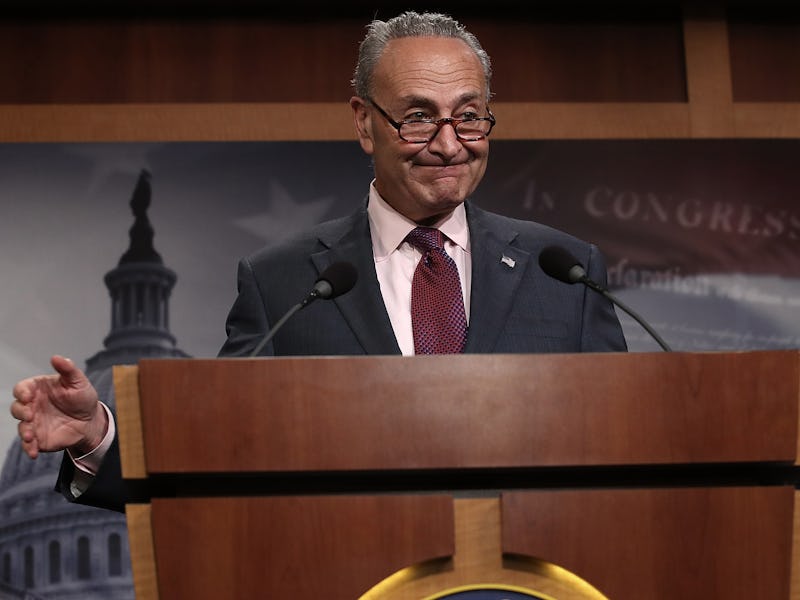Can Senate Democrats Restore Net Neutrality Before It's Too Late?
They need one more vote now, and many more votes later.

Senate Democrats are one vote away Monday from passing their resolution to restore internet freedom. At least, they’re a vote away from completing phase one. According to Minority Leader Chuck Schumer, on Monday Republican Senator Susan Collins joined 49 Democrats in their effort to overturn the FCC’s decision to repeal Obama-era net neutrality protections (yes, it’s a repeal of a repeal). With the addition of one more Republican on board, Democrats could avoid a tie-breaking vote by Vice President Mike Pence and pass the resolution with a 51-49 majority.
Net neutrality supporters should approach this news with cautious optimism, however. It will be tough to get that last vote, and the Senate is just the first bureaucratic obstacle. If Democrats manage to flip one more Republican and pass the resolution in the Senate, the bill will move to the House of Representatives, where Republicans hold a 240-194 seat majority. If the bill passes both the Senate and the House, it will need final approval from President Donald Trump, who opposes net neutrality protections. The Democrats have 60 days to pass the bill after the FCC’s plan is published in the Federal Register.
Compared to some Senate Republicans, American citizens seem to really care about open internet access. Public outcry has been strong since FCC chairman Ajit Pai announced the FCC’s intention to roll back the restrictions to big telecom’s control of the internet last year, and net neutrality support cuts across political party loyalties — at least, outside of Washington.
Even if Democrats fail to pass the resolution, they can still score some political points. By creating a referendum on net neutrality, Democrats can establish themselves as the party of internet freedom and gain political momentum going into the 2018 midterm elections.
In the meantime, net neutrality proponents can contribute to the effort by pestering Republican Senators and Representatives with (polite) phone calls. The odds aren’t great, but a motivated mob of internet enthusiasts could be a formidable opponent.